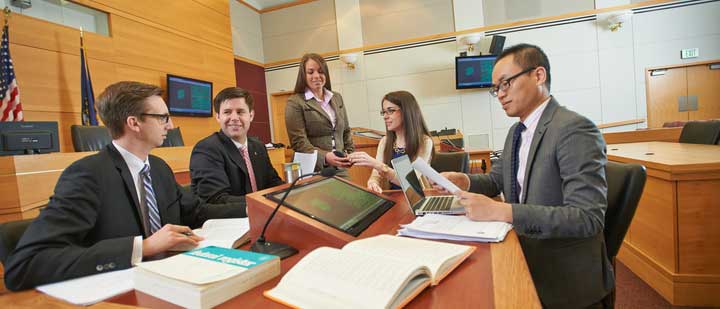The Courtroom as a Classroom: Fieger TPI's Innovative Curriculum

TPI emphasizes hands-on learning and skills training. The curriculum covers everything new lawyers need to succeed in trial practice, including:
- The fundamentals of client retention
- Analyzing legal and factual claims
- Developing theories and themes of the case
- Drafting relevant pleadings (complaints, answers, production requests; interrogatories, deposition notices, motions to compel, motions for summary disposition)
- Arguing the case before sitting judges
- Effective use of courtroom technology in the pretrial and trial
- Jury selection (voir dire)
- Professional decorum and ethics
TPI courses are taught by seasoned litigators who bring their real-world experiences into the classroom. Students actively participate in class, where litigation problems are used with accompanying texts on skills and examples.
The Geoffrey Fieger Trial Practice Institute curriculum was designed with a systematic learning objective. Students must take each class in sequence and as scheduled, and all TPI courses are required: Pretrial I (3 cr); Pretrial II (2 cr); Trial I (3 cr); Trial II (3 cr); Trial Presentation (2 cr); and Scientific Evidence & Legal Technology (3 cr). Students are also required to take Evidence (3 cr/4 cr) and Criminal Procedure (3 cr).
TPI also hosts an annual lecture series, litigation training lunches, and networking opportunities with practicing attorneys, alumni, and judges.
| First Semester | Second Semester |
|---|---|
|
|
| Third Semester | Fourth Semester |
|
|
Also required: Evidence - (3 cr/4 cr), and Criminal Procedure - (3 cr)
Because these courses duplicate the content of courses in the Geoffrey Fieger Trial Practice Institute program, students in the FTPI will not receive academic credit for the following courses:
Civil Trial Advocacy I
Civil Trial Advocacy II
Communication Skills for Lawyers
Criminal Trial Advocacy I
Criminal Trial Advocacy II
Client Counseling
Applied Evidence
This restriction applies to students electing the program in Spring 2008 or thereafter.

